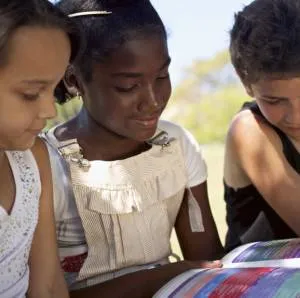
I Learned More about Slavery from Fiction than Public Education
This content contains affiliate links. When you buy through these links, we may earn an affiliate commission.
Before I began my summer course on Shakespeare, I was (per usual) reading multiple books at once. On my Kindle was Octavia Butler’s Kindred. On audiobook was Toni Morrison’s Beloved. This was not on purpose. I had heard wonderful things about Butler and I’ve been on a Morrison kick this year. I didn’t realize (I’m really good at avoiding spoilers or even summaries) that they were both, in radically different ways, about American slavery.
From these books, I learned so much about the travesties perpetrated by the United States against black slaves.
When reading Beloved and Kindred, I was brought to tears so often by the realities of American slavery. I’m aware these are works of fiction. Sethe did not exist, though she is based on many women (Margaret Garner, in particular) who successfully escaped slavery. Dana did not exist. No one actually traveled back in time to the antebellum American South.
Both of these books are written by black women. These black women both experienced racism in their lives. Both these women likely heard stories of slavery in the American South. These stories informed their fiction. Their fiction has inspired me to seek out more of the truth.
I don’t normally rail against my public education. I read some great books. I learned about advanced mathematics, physics, chemistry, biology, history, government, and so much more. I was in band, choir, and theatre. Opportunities abounded.
I remember in school learning that American slaves were treated like cattle. At a high level, I understood how horrible this comparison was. People should not be treated like animals. People should not belong to other people. However, the comparison falls short because like so many of my classmates, I grew up in the suburbs. What do I know about cattle? How can I truly comprehend the similarities?
I did not know that slaves were bred by assignment from their white slaveholders.
I did not know that the slaveholders would then sell off the children while they were still young.
I did not know that slaveholders would treat house slaves slightly less horribly in order to engender Stockholm Syndrome disguised as loyalty.
I did not know that parties of white men would ride around at night looking for escaping (or simply perceived to be escaping) slaves in order to beat and rape them.
The things I don’t know about American slavery could fill an ocean. Perhaps we’re teaching slavery and the Civil War too early. What teacher can be expected to discuss rampant violence, rape, and human trafficking with children that may not even comprehend these concepts? Are our public schools blinded by white privilege? Are we fighting the significant number of people who think the Confederate flag still stands for “Southern Pride” rather than a culture of racism?
Only a couple months ago, my wife overheard someone say that “the slaves wanted to be slaves.” I know this ignorance comes from ignorant upbringing. Showing children the harsh, unfiltered truth of travesties like American slavery is a good start to pushing away this ignorance. Schools spend more time studying Nazi Germany and Jewish concentration camps than on American slavery. Why? Because we’re embarrassed? We should be. It was a horrible time in our history and those who do not learn from history are doomed to repeat it.
Think you know American slavery? Read Kindred or Beloved. Better yet, read a memoir of a black slave in the Antebellum South. Don’t let educational systems dictate the narrative of history.
American Slave Memoirs:
12 Years a Slave by Solomon Northup
A Slave No More: Two Men Who Escaped to Freedom, Including Their Own Narratives of Emancipation by David W. Blight, Ph. D
Incidents in the Life of a Slave Girl by Linda Brendt
When I Was a Slave: Memoirs from the Slave Narrative Collection edited by Norman R. Yetman